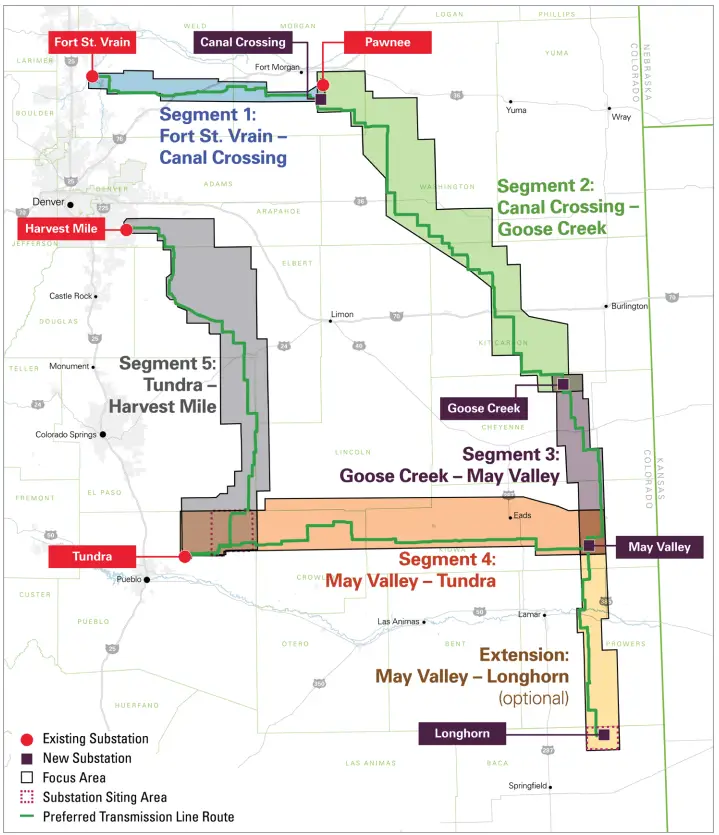Construction on the Colorado Power Pathway, a $1.7 billion investment by Xcel Energy to upgrade the state’s electrical infrastructure and advance renewable energy development, has begun.
Through a 550-mile, 345-kilovolt double-circuit transmission line, this transmission system will transport power from generators located along Colorado’s eastern plains to the cities close to the Front Range. Encircled by the line is eastern Colorado, one of the best regions in the country for wind and solar.
The project also includes the construction of four new and four expanded substations. This will supply power to homes and businesses. The project will take 2.5 years to complete and will cost between $1.7 and $2 billion.
According to Quanta CEO Duke Austin, Xcel Energy is working with the contractor Quanta Infrastructure Services Group, which has developed 25% of the renewable solar and wind energy in North America.
Also Read: Vectra Bank Corporate Center in Colorado completed
The company’s 2021-created Clean Energy Plan, which aims to reduce carbon emissions by an estimated 85% by 2030 and its 2050 carbon vision, which aims to provide 100% carbon-free power by that year, are both supported by the Colorado Power Pathway.
Heather Brickey, the project’s project director, stated that the project’s current goal is to reduce carbon emissions by 80% by 2030. “And then, by 2050, we do have ambitions to achieve a 100% decrease…
Putting the technology in place to reach that 100% goal is a part of it. With the completion of this project and the launch of all generation projects, we will achieve the 2030 targets, after which we will begin to consider the following phase.
Details on the Colorado Power Pathway
Several of the project’s parts pass through counties in the eastern plains. Construction will begin as soon as permit approvals are issued by each jurisdiction for the segment. Construction has begun along segments 2 and 3, according to Xcel Energy.
Land use permitting procedures for segments 1 through 5 are still ongoing. The counties involved are Weld, Pueblo, Arapahoe, Elbert, El Paso, and Lincoln. The segments of segments 1, 2, and 3 previously had approval.

Leave a Reply